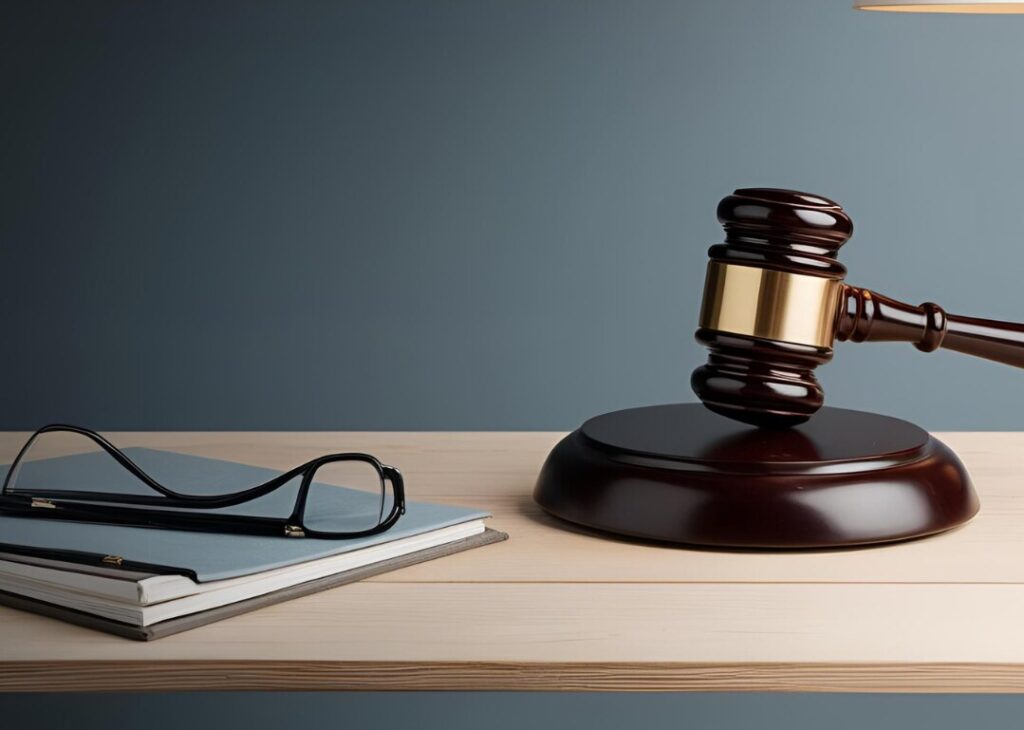TL;DR
Filing a claim against a government entity in Georgia involves specific steps, including identifying the responsible agency, understanding the applicable laws, preparing necessary documentation, and submitting the claim within designated timeframes. It’s essential to follow procedural requirements meticulously to ensure your claim is considered.
Key Highlights
- Identify the Correct Agency: Determine which government entity is responsible for your claim.
- Understand Georgia’s Sovereign Immunity Laws: Familiarize yourself with the limitations and exceptions.
- Gather Necessary Documentation: Collect all relevant evidence to support your claim.
- Complete Required Forms: Ensure all forms are accurately filled out as per guidelines.
- Submit Within Deadlines: Adhere to the strict time limits for filing claims.
- Follow Up and Respond Promptly: Engage with the agency throughout the claims process to address any additional requirements.

When someone is injured due to the negligence of a government employee or agency, whether from a city-owned vehicle accident, unsafe public property, or failure to maintain roadways, filing a claim can feel like an uphill battle. Unlike standard personal injury claims, lawsuits against government entities in Georgia are subject to strict rules, shorter deadlines, and sovereign immunity protections that can block your case entirely if not followed precisely. Under O.C.G.A. § 50-21-26, individuals must file an ante litem notice within 12 months of the incident, clearly stating the time, place, nature of the loss, and amount of damages sought. Missing this step can forfeit your right to compensation altogether.
The stakes are high, and many injury victims are unaware of how different and unforgiving this process can be. The government has legal shields that ordinary defendants don’t, and procedural mistakes, even minor ones, can derail your entire claim. Add to this the stress of recovering from an injury or dealing with property damage, and it’s easy to see why many give up before they even begin. Fortunately, by understanding the process early, complying with all notice requirements, and working with an attorney experienced in government liability cases, you can assert your rights and pursue the compensation you deserve. Let me walk you through the critical steps to filing a claim against a government entity in Georgia and how to avoid costly missteps along the way.
Understanding the Legal Framework
Georgia’s Sovereign Immunity Doctrine
Georgia follows the federal doctrine of sovereign immunity, which generally protects government entities from being sued without their consent. This means that before initiating any legal action, it’s essential to determine whether the specific government entity has waived its immunity for the type of claim you’re pursuing.
Exceptions to Sovereign Immunity
Several exceptions allow individuals to file claims against government entities in Georgia. These include cases involving negligence, breach of contract, or violations of constitutional rights. Understanding these exceptions is crucial in determining the viability of your claim.
Statutory Limitations
Georgia law imposes strict deadlines for filing claims against government entities. Typically, claims must be submitted within six months of the incident. Missing these deadlines can result in the dismissal of your claim, making timely action imperative.
Identifying the Responsible Government Entity
Federal vs. State Entities
Claims can be directed at federal, state, or local government entities, each with its own set of rules and procedures. Identifying the correct level of government is the first step in ensuring your claim is processed appropriately.
Local Government Units
Cities, counties, and municipalities each have specific departments that handle claims. For instance, a claim related to a city-maintained property would be directed to that city’s respective department.
Specialized Agencies
Certain claims may fall under the jurisdiction of specialized agencies, such as the Georgia Department of Transportation for road-related incidents or the Georgia Bureau of Investigation for cases involving public safety.
Preparing Your Claim
Collecting Evidence
Gather all relevant evidence to support your claim. This includes photographs, witness statements, medical records, and any other documentation that can substantiate your case.
Detailed Documentation
Provide a clear and concise account of the incident, detailing the circumstances, parties involved, and the impact on your personal or property. Precision in your description can significantly influence the strength of your claim.
Legal Consultation
Consulting with an atlanta personal injury attorney experienced in government claims can provide valuable insights and ensure that your claim complies with all legal requirements. Legal professionals can help in navigating complex statutes and procedural nuances.
Filing the Claim
Completing Necessary Forms
Each government entity may have specific forms required for filing a claim. Ensure that all sections are accurately filled out and that all required attachments are included to avoid delays.
Submitting to the Correct Office
Claims must be submitted to the designated office of the responsible government entity. This could be a claims department, legal office, or another specific division tasked with handling such matters.
Adhering to Deadlines
As previously mentioned, adhering to the statutory deadlines is critical. Keep track of all important dates and ensure that your claim is submitted well within the allowed timeframe to maintain its validity.
After Submission: What to Expect
Acknowledgment of Receipt
Upon submitting your claim, the government entity should provide an acknowledgment of receipt. This confirmation may include a reference number or contact information for follow-up inquiries.
Review Process
The claim will undergo a review process, where the responsible agency evaluates the merits of your case. This may involve further investigation, interviews, or requests for additional information.
Decision and Response
After the review, you will receive a decision regarding your claim. If approved, details about compensation or remedial actions will be provided. If denied, the response should include the reasons, allowing you to consider further legal action if necessary.
Resolving Disputes and Appeals
Initial Decision Review
If your claim is denied, you have the right to request a formal review of the decision. This involves presenting additional evidence or clarifying existing information to strengthen your case.
Administrative Appeals
Some claims processes include an administrative appeal stage, where a different set of officials re-evaluate the claim. Understanding the appeals process is essential for those seeking to overturn an unfavorable decision.
Judicial Remedies
If administrative avenues do not yield a satisfactory outcome, you may pursue judicial remedies by filing a lawsuit. This step requires adherence to specific procedural rules and may necessitate legal representation.
Tips for a Successful Claim
Be Thorough and Accurate
Ensure all information provided is accurate and complete. Incomplete or incorrect details can result in delays or dismissal of your claim.
Maintain Organized Records
Keep copies of all submitted documents, correspondence, and notes related to your claim. Organized records facilitate easier follow-up and reference throughout the process.
Communicate Effectively
Maintain clear and professional communication with the government entity handling your claim. Promptly respond to any requests for additional information to keep your claim moving forward.
Seek Professional Assistance
Engaging with a legal professional can significantly enhance your chances of success. Attorneys can help navigate complex legal requirements and advocate on your behalf.
Common Challenges and How to Overcome Them
Navigating Bureaucracy
Government entities often have complex bureaucratic structures, which can be daunting. Staying informed about the specific procedures and requirements can help mitigate confusion.
Meeting Deadlines
Strict deadlines can be challenging, especially when dealing with unexpected delays. Setting personal reminders and starting the process early can help ensure timely submission.
Gathering Sufficient Evidence
Compiling the necessary evidence can be time-consuming. Begin collecting relevant documents and testimonies as soon as possible to build a strong foundation for your claim.
Conclusion
Filing a claim against a government entity in Georgia requires a clear understanding of the legal framework, meticulous preparation, and strict adherence to procedural guidelines. Under O.C.G.A. § 50-21-26, failure to file a timely and properly worded ante litem notice can completely bar your claim, regardless of its merits. By identifying the correct government body, documenting your damages thoroughly, and submitting the notice within the statutory deadline, you improve your chances of holding the responsible agency accountable. These cases are often more complex than standard personal injury claims due to sovereign immunity protections and rigid filing requirements, making accuracy and timeliness essential.
Working with an experienced attorney can significantly strengthen your case. Legal professionals understand the nuances of Georgia’s Tort Claims Act and can help ensure your notice meets all technical requirements. Taking swift legal action not only increases the likelihood of a favorable resolution but also promotes accountability and safety within public services. If you believe you have a valid claim against a city, county, or state entity in Georgia, don’t wait. Contact us today for a free case evaluation, let us help you protect your rights and navigate this challenging legal process with confidence.



